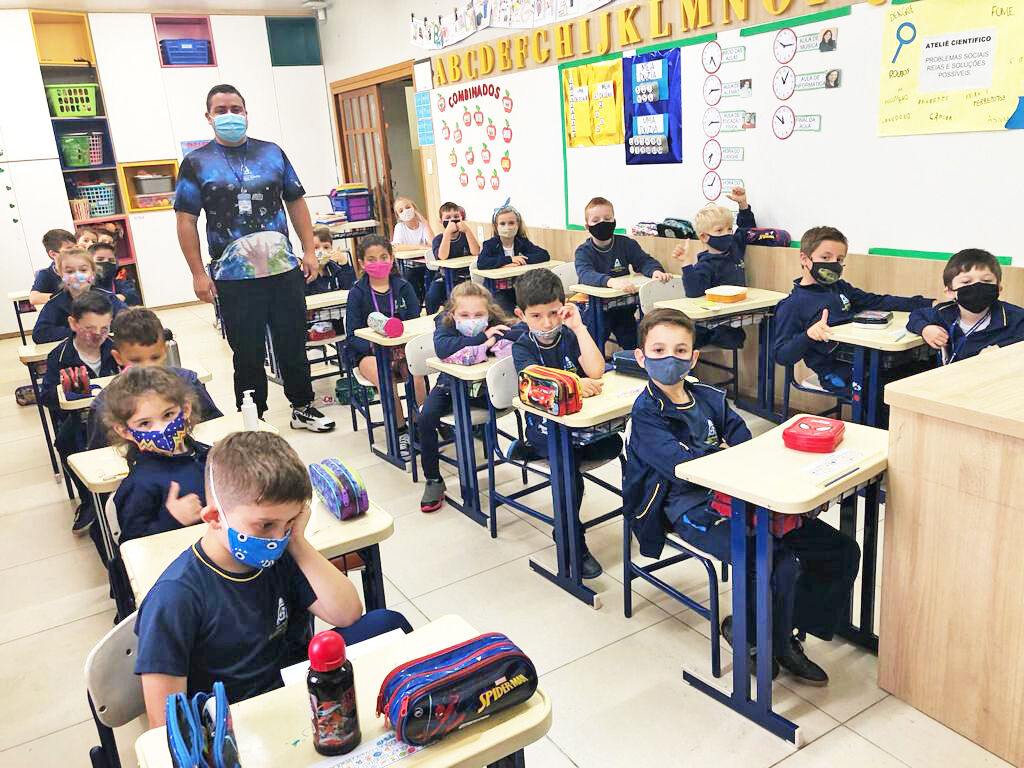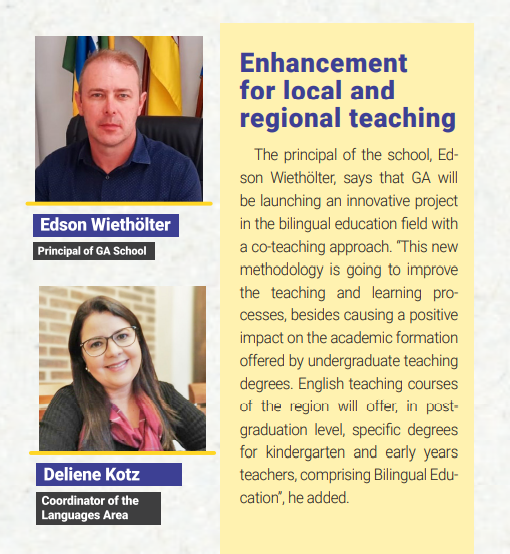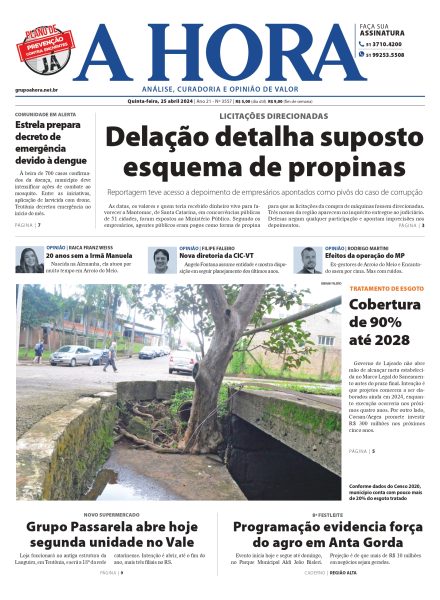
Saber inglês é fundamental!
Teachers with a Bachelor’s degree in Pedagogy and educators holding an English Language graduation will be protagonists, simultaneously, in the classrooms of the kindergarten’s level III (what, in our school, concerns 5-year-old children) and primary school’s first year (6-year-old children) of Colégio Sinodal Gustavo Adolfo, as of 2022.
According to Deliene Kotz, coordinator of the Languages Area, the first stages were composed by the selection process of new English teachers and the overhaul of study plans for these classes that will embrace the bilingualism. “There were also moments of mentoring about the project, regarding to the legislation and principles, meetings for discussion, methodology strategies, as well as activity planning”, she says. She adds that a teacher training will take place at the beginning and throughout the school year. These actions are provided by the school itself and through partnerships with other institutions.

How it’s gonna work:
– Next year, the mentioned classes will have two teachers acting at the same time: a pedagogue and an English teacher. The children literacy will occur in the native language and, concomitantly, they will be in touch with the second language.
– The English language is going to be a means to teach curriculum contents, such as Portuguese, Maths, Social and Natural Sciences and Ethics and Religious education. In Portuguese and Maths class, particularly, who introduces the contents first is the Pedagogue. In Science, Arts or Ethics, for instance, there’s no need to be taught by the Pedagogue first, since they are more practical subjects.
– Once a certain content is explained, the English teacher is able to work with it in another class, developing what has already been discussed.
– Unlike what happens currently, the students will have both teachers as role models. Together, these educators are going to think, plan, organise, teach and evaluate. For further questions, the child will seek support from them both, even though there will be occasions that one teacher has more activities than the other.
– On Mondays and Fridays, the classes will have monolingual times, with the pedagogues in one class and the English teachers in other. The aim, according to Deliene, is to intensify experiences, understanding the needs of each class, so that all contents are knowledgeable.
Listen, speak, write and read!
The bilingual Project, which aims to comprehend, initially, about 100 children of 4 classes, won’t offer English classes aimed at translation only, but classes in English, wherein the comprehension and evolution of the student will be the goals. As stated by the English teacher Jairo Goetz, the sooner the student has contact with the foreign language, the better and faster are the results. “We want our students to listen, speak, write and read in English. With these four skills he will be proficient”
